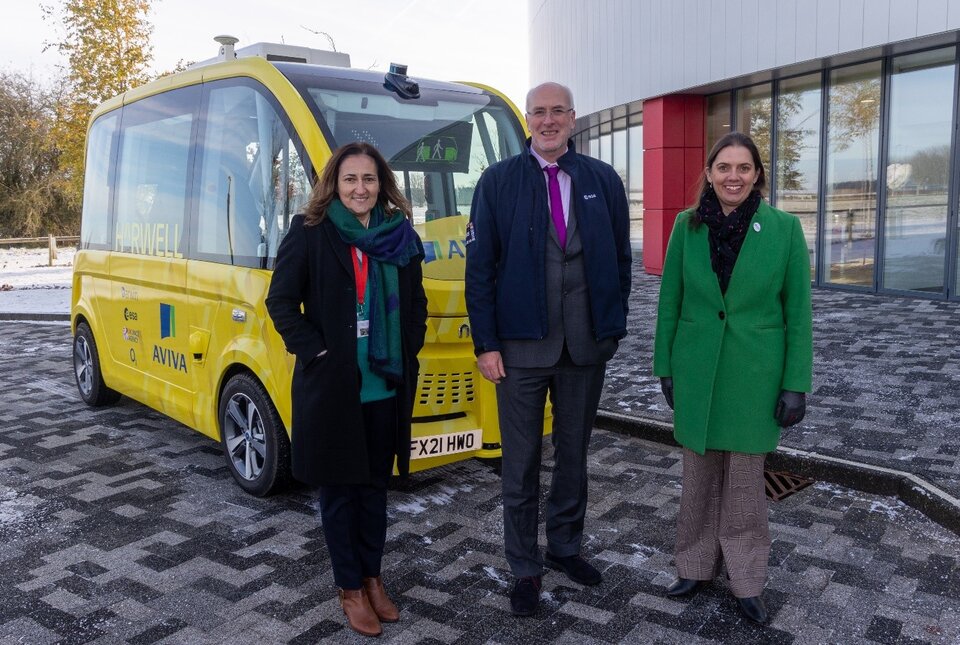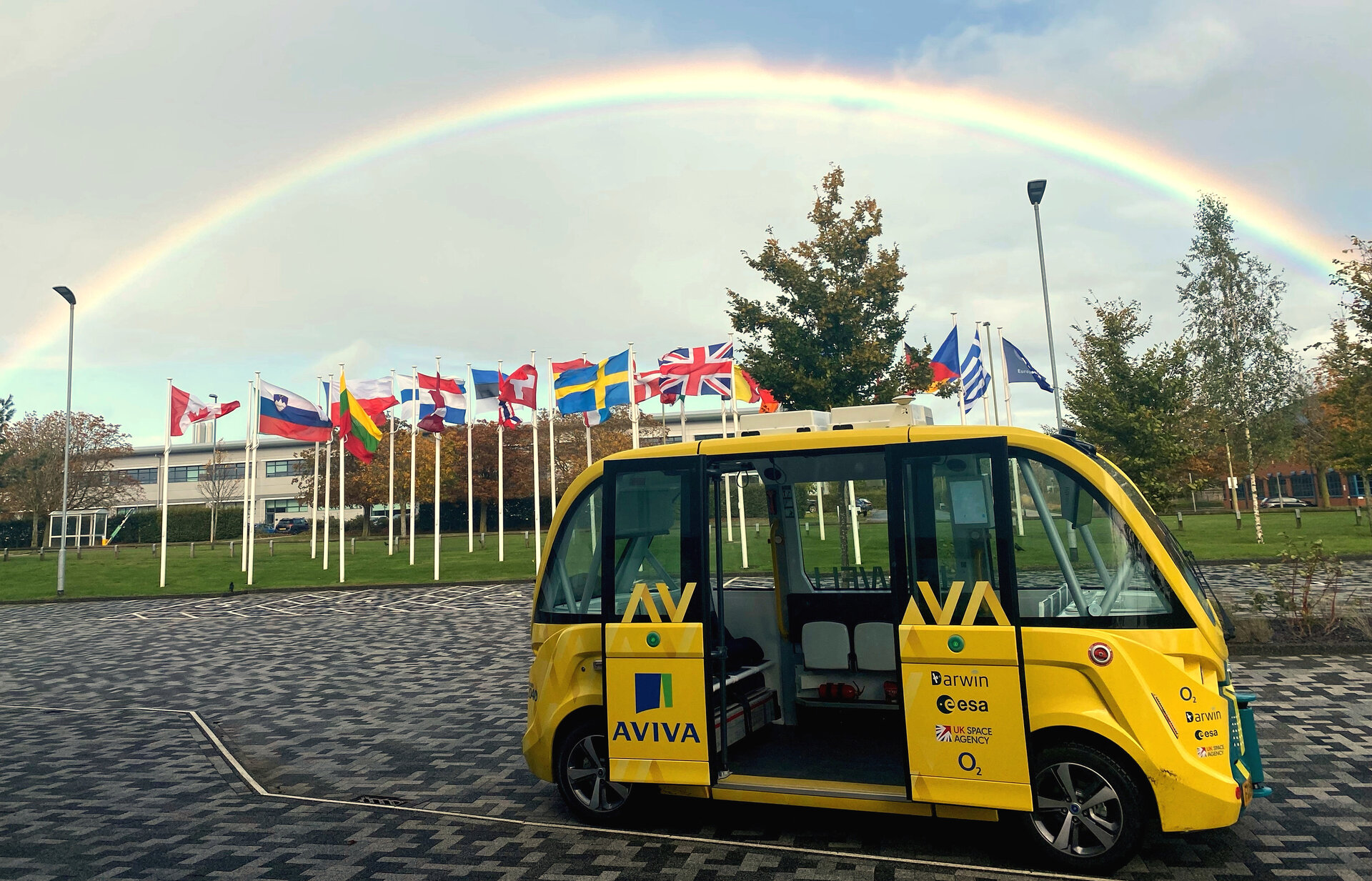Autonomous shuttle transports passengers at Harwell Campus
A driverless shuttle service that uses integrated 5G and satellite communications has launched at Harwell Campus in the UK.
The electric shuttle’s communications technology was developed by Darwin Innovation Group with the support of ESA and the UK Space Agency.
The service is run by Darwin on two separate routes across campus, both of which begin at ESA’s European Centre for Space Applications and Telecommunications (ECSAT).
The service was launched during an event held at ECSAT today.

Created by autonomous transport specialist Navya and insured by British company Aviva, the vehicle is fitted with lidar sensors, cameras and ultrasound sensors to map the environment around it and detect obstacles, as well as a navigation antenna for positioning.
Although there is no driver, an operator will be on board at all times to manage the shuttle’s safety controls, ensuring journeys go as planned.
Autonomous vehicles have huge potential to improve road safety and reduce planet-warming emissions, and Darwin will use the Harwell shuttle service to gather important information about their operation.
ESA is stepping up its efforts to use space to combat the climate crisis through Agenda 2025 and has launched three accelerators to unite European space actors, including “Space for a green future”.
Data is sent from the shuttle in real-time using satellite and terrestrial 4G and 5G channels.

The shuttle uses networks provided by mobile operator Virgin Media O2 and satellite operator Hispasat, with cloud data company Amazon Web Services providing the storage for the data it transmits.
The service is freely available to campus pass-holders and registered guests.
Hosted by Harwell Campus and the Science and Technology Facilities Council, the shuttle adds to existing ESA-supported efforts at Harwell to showcase the potential of space-enabled telecommunications networks.
These include an ECSAT-based business innovation centre for next-generation connectivity called the 5G/6G Hub, and a 5G lab for the development of driverless car technology that is operated by Darwin and Virgin Media O2.
Daniela Petrovic, Delivery Director at Darwin, said: “We’re thrilled to play a part in demonstrating the real-world potential of autonomous vehicles. Self-driving cars are no longer theoretical, and we believe that connected autonomous vehicle trials can help move the UK towards greener, more efficient and more accessible modes of transport.”
Stuart Grant, Chief Executive at Harwell Science Campus, said: “At Harwell we’ve created a scale-up ecosystem that promotes collaboration, multidisciplinary innovation and the creation of smart technology. We’re delighted to be able to support campus-based Darwin with the launch and operation of their next-generation autonomous shuttle. The Harwell shuttle will transport over 6000 employees around the campus, showcasing the future of travel and urban mobility.”
Elodie Viau, ESA’s Director of Telecommunications and Integrated Applications, said: “5G, and soon 6G, is set to transform society. For this to happen, communications networks in space have to be integrated with terrestrial ones. ESA is excited to champion the Harwell shuttle service, a project that will both showcase the reliable, instant 5G connectivity delivered by converged space and ground telecommunications networks and bring low-emissions, autonomous vehicles to the roads.”
UK Science Minister George Freeman said: “Until now autonomous vehicles have relied on terrestrial Wi-Fi, which means they can struggle to operate in remote and rural areas. By unlocking the power of space and satellite technology, these shuttles can stay connected all the time.
“Our National Space Strategy promises to put space technology at the heart of our efforts to make the UK a science and innovation superpower. Autonomous vehicle technology has huge applications in key industries, and the UK is committed to lead in adoption as well as technological innovation.”


